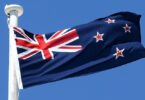The Centre for the Promotion of Private Enterprise [CPPE] has said that an executive order removing duties on pharmaceutical imports will reduce the cost of drugs, create more jobs and impact positively on the well-being of citizens.
Director/ CEO of CPPE, Dr. Muda Yusuf who stated this in a statement made available to TheWitness commended the Federal Government on the recent Executive Order removing import duties, VAT, Excise duty on pharmaceutical raw materials, intermediate products, medical diagnostic equipment and machinery.
“These fiscal policy measures would boost domestic production of pharmaceutical products, improve access to healthcare, and impact positively on the well-being of citizens. It would also revitalize our pharmaceutical industries and create more jobs,” he said.
Yusuf noted that fiscal policy measures have much better prospects of addressing supply-side challenges in the economy, if well-targeted.
He said that boosting production is vital to fixing the current inflationary pressures, driven largely by supply side challenges in the economy, adding that fiscal policy measures are potent tools for the realization of this objective.
“We recommend that these fiscal policy measures should be replicated to boost production in other segments of the real sector.
We need similar executive orders for agriculture, agrochemicals and Agro-allied industries to curb the surging food inflation; we need similar intervention in the energy sector, to promote energy security and incentivize private investments in the sector; there is a need for similar support for Iron and steel sector to aid the construction industry and reduce construction costs for housing and infrastructure,” he said.
Yusuf said that the country also needs fiscal policy protection to support domestic investments in petroleum refineries to conserve foreign exchange, create jobs, and deepen backward integration.
He noted that there is a groundswell of economic nationalism globally and that the country should respond by strengthening its domestic production capabilities across all sectors.
He stated that fiscal policy measures have proven to be more impactful on real sector performance than monetary policy.
According to him, the real sector of the economy deserves to be effectively protected and incentivized to improve production and ensure sustainability investments in that space.
Yusuf said that the Nigerian economy cannot afford to submit to a regime of complete trade liberalization in light of the challenges faced by domestic manufacturers.
“We need to stem the tide of deindustrialization of the Nigerian economy, the exit of foreign direct investors and the rising mortality rate of domestic industries. We believe that stepping up fiscal policy interventions would facilitate the realization of this objective. But we must be ready to trade off some revenue in the short term,” he said.
Yusuf noted that the economy would be better off in the medium to long term, with regard to growth in domestic production, less import dependence, heightened prospects of disinflation, higher job creation and better economic resilience.
He also commended the CBN for scrapping of its Price Verification System Portal which was a needless duplication of the functions of the Nigeria Customs Service, and a product of a dysfunctional foreign exchange regime.
“We urge the CBN to sustain its engagement with the private sector for quality, evidence-based feedback on monetary policy outcomes.
In the meantime, we should identify other overlapping regulatory functions which have continued to constitute impediments to domestic and foreign investments. The impact varies across sectors,” he said.
According to him, some of these regulatory overlaps exist with respect to the following institutions: the Federal Ministry of Environment, National Environmental Standards and Regulations Enforcement Agency [NESREA], State environmental protection agencies, local government environmental units, and state waste management agencies.
He noted that there are also overlapping functions with respect to SON, NAFDAC, Nigeria Agricultural Quarantine Service, Weights and Measures Department, and Federal Competition and Consumer Protection Commission [FCCPC].







